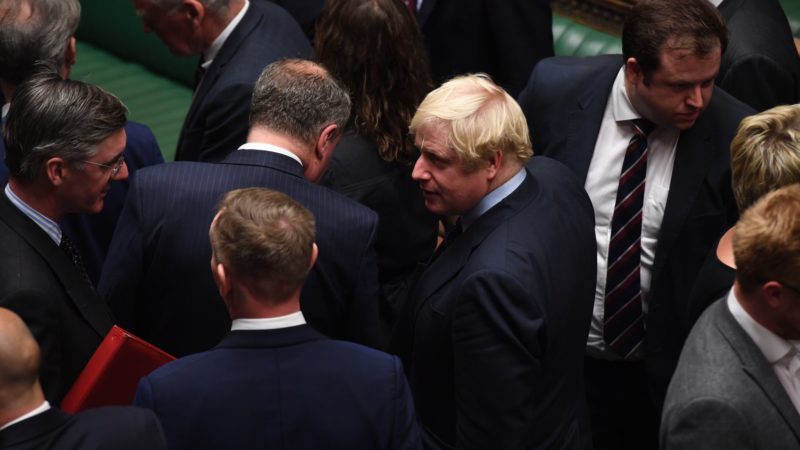
Labour has called for the publication of the method used to determine which areas are prioritised under the new levelling-up fund and accused the Tories of selecting constituencies held by ministers over more deprived areas.
Highlighting that Rishi Sunak’s constituency and those of four other members of the Cabinet have been prioritised to bid for the fund, the opposition party has said this raises questions over the fairness of allocations under the scheme.
Each local authority within England has been ranked in order of priority for the fund, which will focus on investment in local infrastructure, and the prospectus states that “category one representing the highest level of identified need”.
Labour has pointed out that the highest priority category for the cash includes Sunak’s Richmondshire local authority, where the party highlighted that there are houses currently on sale for £2.5m.
The party has also noted that Communities Secretary Robert Jenrick, Welsh Secretary Simon Hart, Scottish Secretary Allister Jack and Northern Ireland Secretary Brandon Lewis have all seen their constituencies placed in category one.
These areas have been allocated a ranking ahead of Barnsley, Flintshire, Coventry, Plymouth, Salford and the Wirral, all of which have been placed in the second tier priority group for funding.
Commenting on the funding prioritisation, Shadow Communities and Local Government Secretary Steve Reed said: “This research raises big questions marks over the fairness of the government’s regeneration funding schemes.
“Just months after the government was criticised for diverting funding away from towns that desperately needed it, we discover that cabinet ministers own constituencies now stand to benefit ahead of more deprived areas.”
Jenrick has been called to parliament several times to answer questions on the controversial allocations of public fund under the Towns’ Fund and Labour last year demanded that the Cabinet Office look into his role.
An inquiry into the £3.6bn fund raised concerns that decisions were politically biased after the then communities minister Jake Berry signed off on cash for Jenrick’s seat, while Jenrick approved a grant for Darwen in Berry’s constituency.
Reed added: “This government should be investing to rebuild the foundations of our economy, but they’re pulling the country further apart by pitting regions and nations against each other for crucial funding then diverting the money to serve their own party’s needs.”
The Chancellor announced the £4bn fund to parliament in the spending review last November to support towns and communities with regeneration projects. Local authorities will be able to apply for up to £20m each.
Applications depend on the projects having local support, including from an MP. Commentators warned at the time that the bidding process for the scheme, controlled by the Treasury, would risk pitting communities against each other.
A Treasury spokesman said: “The bandings do not represent eligibility criteria – and money will be allocated to the areas most in need. Further technical details will be published by the government in due course.”




More from LabourList
‘Labour is being badly misled on housing’
Reeves bets on patience over populism
‘Energy efficiency changes must work for older private renters’